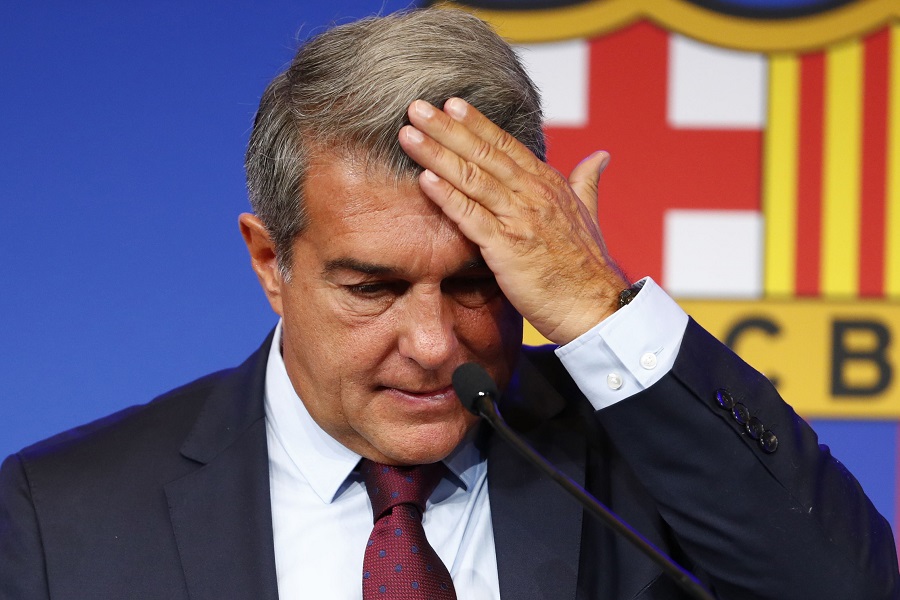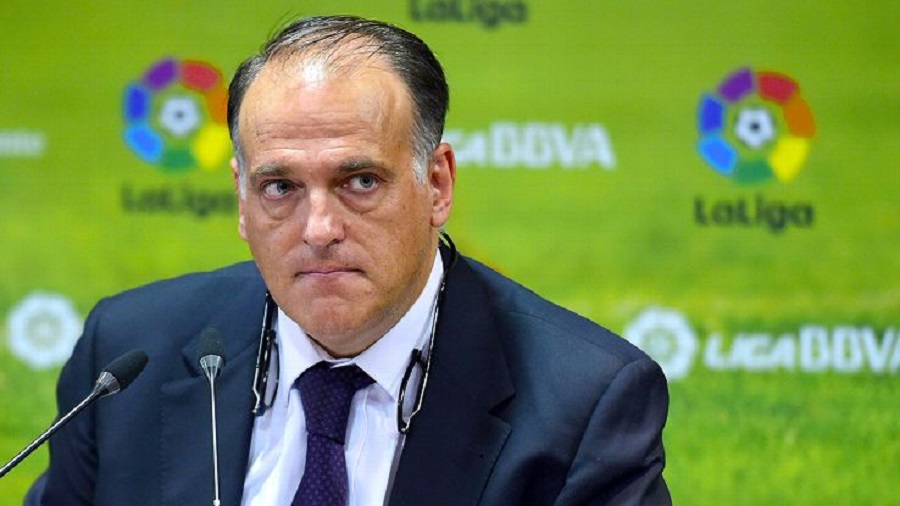When La Liga released its updated salary limits on Friday, Barcelona’s numbers revealed the depth of their financial bind.
The Catalan club’s official salary cap fell by €112 million, from €463 million in February to €351 million in September.
The cut stems mainly from auditors refusing to recognise €100 million in projected revenue from the so-called “VIP zones” lever at the Camp Nou.
In practical terms, this is not just an accounting issue. It goes straight to the heart of what Barcelona can and cannot do in the transfer market. In La Liga, the salary limit determines how much clubs can spend on wages. Exceed the limit, and new signings cannot be registered, even if the club has already agreed a deal or paid a transfer fee.
For Barcelona, this creates a recurring cycle, making headline signings, but the real battle is finding space in the books to actually get them on the pitch.
The VIP Lever That Backfired
The latest drop ties directly to Barcelona’s attempt to unlock value from the future. According to Athletic UK, they raised money by selling 25 years of revenues from 475 Camp Nou VIP boxes. An earlier auditor counted that €100 million as income, helping inflate the February salary cap. The current auditor refused, effectively erasing the sum from Barcelona’s calculations.
To complicate matters further, Barcelona have not even received the full promised payments, a source revealed to the Athletic UK. Of the €70 million due from New Era Visionary Group (NEVG) for their share of the deal, only €28 million has actually arrived. That gap leaves both the books and the club’s transfer flexibility exposed.
For Joan Laporta’s board, this is a familiar story. Since 2021, Barcelona have relied on “economic levers”, selling future broadcast revenues, sponsorship packages, or commercial assets, to patch holes in their accounts and register players. This worked for a while, but the auditors’ stricter approach and the limits of creative financing suggest the club may soon run out of options.
More registration troubles ahead
The immediate implication is clear: Barcelona could again face player registration issues in future transfer windows. During the 2025 summer market, they had to navigate tight restrictions just to register goalkeeper Joan Garcia, teenage winger Roony Bardaghji, and loan signing Marcus Rashford. Those deals went through, but only after careful juggling within La Liga’s framework.
If the salary limit remains at €351 million, or drops further without new revenue streams, every potential signing will need to be offset by departures, pay cuts, or further asset sales. That creates a climate of uncertainty for both fans and players. Unlike Real Madrid, who now enjoy a salary cap of €761 million, or even Atletico Madrid at €327 million, Barcelona’s room for manoeuvre is shrinking.
Remember, Barcelona’s pursuit of Nico Williams in the summer transfer reportedly collapsed over registration uncertainty, with the club unable to guarantee his contract would clear La Liga’s financial controls.
Why La Masia Matters More Than Ever
La Masia has always been central to Barcelona’s identity, but with finances still under strain, the club will have little choice but to keep leaning on its academy, just as it has done heavily in recent years.
Bringing players through the academy is not just tradition; it’s a financial strategy. Homegrown talent comes with minimal registration costs compared to costly signings, and for a club wrestling with its balance sheet, La Masia provides both a link to identity and much-needed economic relief.
The risk, however, is whether reliance on youth can keep Barcelona highly competitive against Europe’s elite.
Barcelona will keep churning out top prospects, but without the room to bring in experienced signings, the weight on those youngsters could quickly become too much.
Playing Without a Home
Compounding matters is the absence of Camp Nou matchday revenue. Since May 2023, Barcelona have been forced to play at temporary venues, first Montjuïc, now even the 6,000-capacity Johan Cruyff Stadium for certain fixtures. The financial hit is enormous. La Liga estimates the club lost €70-80 million last season due to reduced matchday income.
Returning to the Camp Nou and activating the revenue potential of the new VIP zones remains Barcelona’s best hope of stabilising its finances. But even then, much depends on whether auditors will approve those revenues for salary cap purposes. Until then, the financial tightrope walk continues.
For Barcelona fans, the situation is a tough pill to swallow. For the board, it’s proof that years of mismanagement and short-term fixes still cast a long shadow, even if the majority of it doesn’t fall on the current regime. Until Camp Nou starts generating steady matchday and hospitality income again, any hope of high transfer ambitions for Barcelona will stay boxed in by financial limits.




















